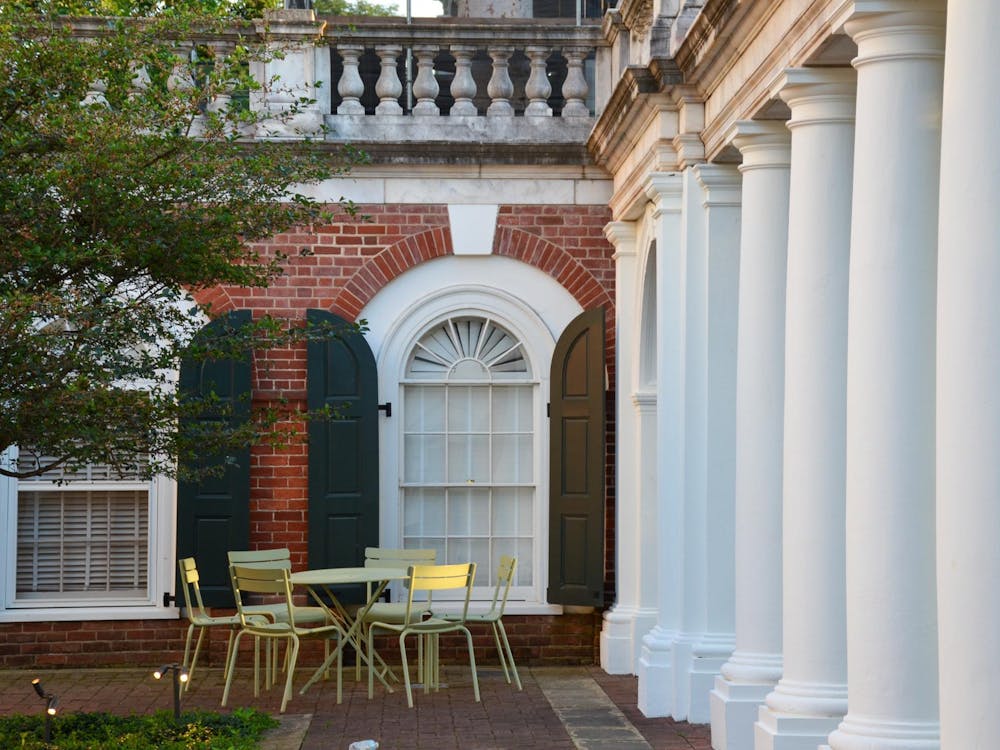Students are used to having the sources they cite in their research papers scrutinized by professors and teaching assistants, but not by Uncle Sam.
Yet under the Patriot Act, passed by Congress in the wake of the September 11, 2001 attacks as a way to fight terrorism, the federal government has the power to do just that -- a power it that has left unexercised for now.
The act empowers law enforcement officers to obtain library records as a part of foreign terrorism or international intelligence investigations, without having to notify the individual whose records they obtained.
"We are not exempt from those requirements," said Madelyn Wessel, special assistant to the vice president of student affairs and a liaison to the University's General Counsel.
Though U.S. Attorney General John Ashcroft said in September that law enforcement officers have not yet requested records from any library through the Patriot Act, University libraries do have records that theoretically could be requested.
"If you check out a book, the library has a record of who checked it out," Wessel said.
Library spokesperson Charlotte Morford said although it is her understanding that the Patriot Act applies to University libraries, officials would seek legal advice before handing over any information.
"Any request that would be made to us we would refer to the General Counsel's office," Morford said.
She also noted a University library policy statement that affirms its commitment to confidentiality.
The policy states, "University of Virginia Library records that contain the names or other personally identifying information about the users of the Library, its collections, or services are confidential and will not be disclosed to anyone other than the user, except as required by law."
Wessel said the library takes this idea very seriously and will not disclose any information unless legally forced to do so.
"The library is extremely committed to maintaining the civil liberties and privacy of its patrons," Wessel said.
Though the Patriot Act sailed through Congress in 2001, it has come under scrutiny since then from those who feel it gives law enforcement too much power and infringes on civil liberties.
Three states, Alaska, Hawaii and Vermont and over 200 communities across the country have passed resolutions expressing concern with some or all of the Patriot Act.
The provision related to libraries in particular has generated a good deal of criticism.
The American Library Association also issued a resolution in January, criticizing the act as a "danger to the constitutional rights and privacy rights of library users."
The backlash does not come from a particular ideological group, instead including conservatives who are mistrustful of expansions of the federal government power such as Idaho Congressman C.L. "Butch" Otter and liberals who are sympathetic to the goals of civil libertarians such as Vermont Congressman Bernie Sanders.
Sanders has proposed a bill, the Freedom to Read Protection Act, to reverse the provision of the Patriot Act affecting libraries.
The Patriot Act, "allows the F.B.I. to obtain records without any probable cause," Sanders spokesman Joel Barkin said. "Giving them this open access without any accountability is a total infringement on people's rights."
Barkin said Sanders is currently trying to attach the bill to a Justice Department Appropriations bill, in order to get it enacted into law.
Many of the Patriot Act's original supporters, such as Ashcroft and Utah Senator Orrin Hatch are unconvinced by these criticisms of the law, instead arguing that if anything the act did not go far enough in empowering law enforcement to conduct investigations.
Neither Ashcroft's office nor Hatch's office returned calls seeking comment.
Supporters of the provision have argued that allowing the government to obtain library records is important to national security, for example claiming some of the September 11 hijackers used public library computers to plan the attacks.
They also point to the fact that library records have not been requested, saying concerns that the law would be used to violate civil liberties have proven unjustified.
Yet Barkin said even if the library provision has not been utilized, it still has the potential to "stifle curiosity." He gave the example that students might be reluctant to research al-Qaida out of fear their library records would make them the subject of investigations.
Barkin added that while other discussion of the Patriot Act have been too complicated to catch the public's interest, the library issue has resonated widely.
"This issue people really understand," he said.






